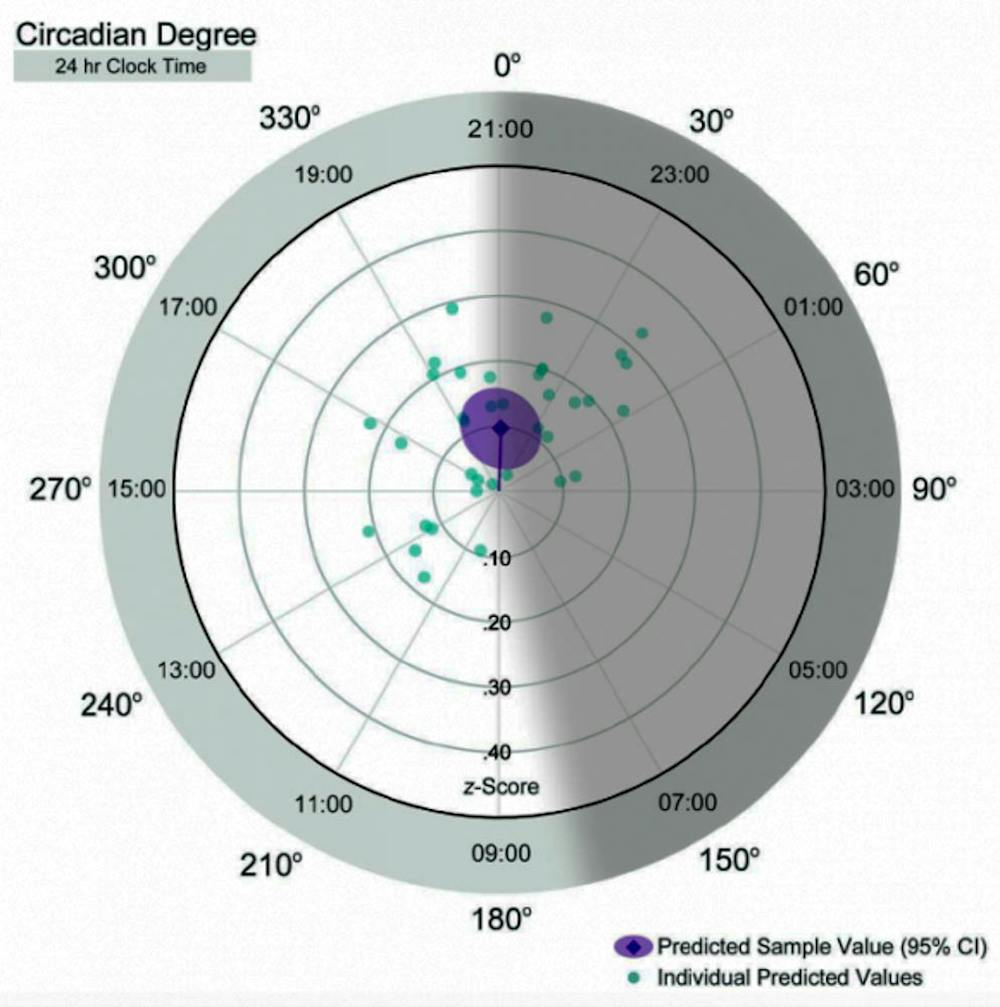A recent University study has linked olfactory sensitivity — or one’s ability to smell — to circadian rhythm: It showed that the “biological clock plays a role in our ability to smell,” said Mary Carskadon, professor of psychiatry and human behavior and director of the Sleep for Science Research Lab.
This study effectively challenged a long-assumed dogma in the field of olfaction — the notion that smell sensitivity remains fairly stable, said Professor of Psychiatry and Human Behavior Rachel Herz, the study’s lead author. The previously held understanding of the olfactory trait was that, besides some variability resulting from effects of gender, age, illness and certain medications, it was “assumed that whatever your smell sensitivity was Tuesday at four o’clock is going to be the same next week Friday at 8 a.m.,” Herz said. The study suggested otherwise, showing “it’s a variable state that changes as a function of the circadian phase of the individual,” she added.
The study involved 37 adolescent subjects, aged 12 to 15, and found their peak olfactory sensitivity to be around 9 p.m., while “nobody (showed) peak olfactory sensitivity from … 2:30 a.m. to 10 (a.m.),” Herz said. Carskadon emphasized, despite this general trend, the timing was variable and “had different features from child to child.” The adolescents’ smell sensitivity was analyzed using Sniffin’ Sticks, a series of pens with odored tips that allow measurement of the threshold at which an odor is detected. Additionally, a protocol called forced desynchrony enabled researchers to separate hours awake from circadian phase, Herz said.
“It’s just such a delight (when) … one of these kinds of findings emerges from this very complex method of collecting data,” Carskadon said.
This research was a piece of a larger project being conducted by Carskadon. The larger study looks at “whether the timing, … quantity and type of food that adolescents eat is different as a function of their body type,” she said. The idea to look more closely at smell sensitivity was born from an “aha” moment in which she realized smell sensitivity might be related to dietary habits. Herz’s expertise in smell and taste lent itself well to the project; she has a book coming out this year entitled, “Why You Eat What You Eat.”
Smell is a crucial sense in ways beyond its everyday implications for taste. “This is more evidence that you need to have auditory fire alarms,” since even smoke’s strong odor would likely not be enough to alert someone of danger during the nighttime period of decreased sensitivity, regardless of whether or not they were awake, Herz said.
Herz has speculations about the evolutionary reasoning behind peak olfaction taking place in the evening. There are “three possible reasons: It helps with satiation for food when there isn’t a lot available, it helps with potentially detecting predators when light levels are low, and … it helps for selecting (a) more compatible mate,” she said.
This data may also have implications for clinical settings, Carskadon said. It could influence other research being done with olfaction by giving researchers a sense that their measurements could be affected by the time of day at which they are collected.
Chih-Ying Su, professor of neurobiology at the University of California at San Diego, said the study “was very exciting” due to its novelty and it will “open the doors” for other studies by raising “interesting questions” from the neurobiological standpoint regarding how this modulation of sensitivity occurs.





